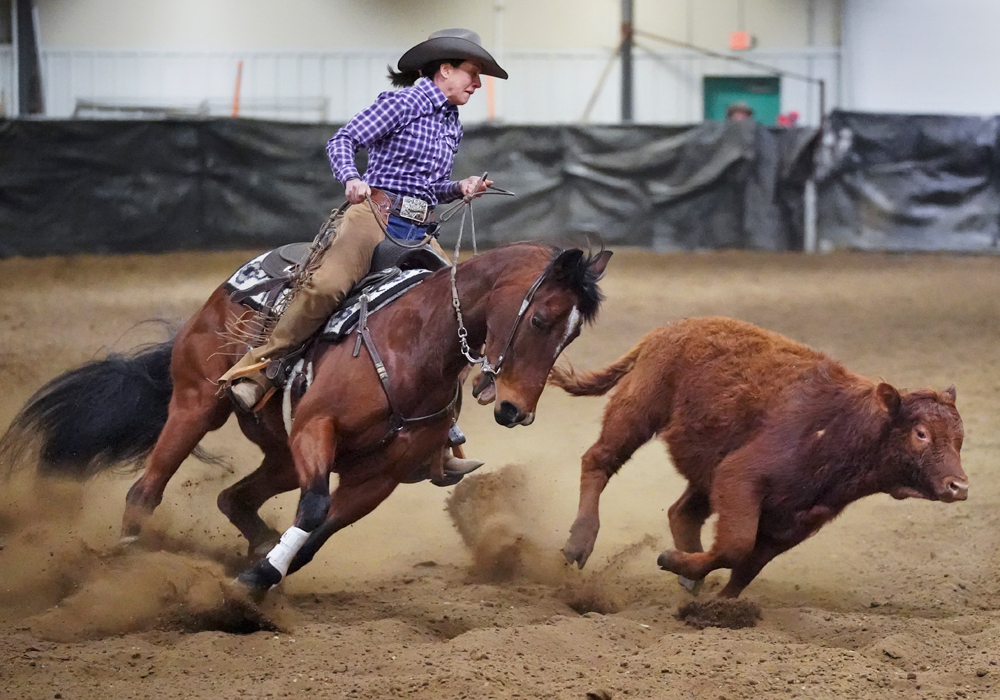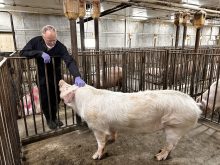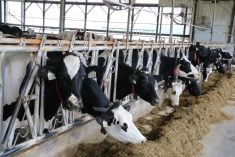Through evolution, horses have developed a tremendous capacity for running at sustained, high speeds. To meet these athletic demands, horses have remarkably large lungs and heart.
Those organs must be healthy. With each heartbeat, blood courses through the lungs, exhausting carbon dioxide and refreshing its oxygen load before travelling around the blood vessels to oxygenate the body’s tissues. In modern times, people capitalize on this athleticism, expecting high performance in activities like racing, reining and jumping. And even those horses with a more leisurely lifestyle need sound lungs to properly oxygenate their blood.
Read Also

Beef check-off collection system aligns across the country
A single and aligned check-off collection system based on where producers live makes the system equal said Chad Ross, Saskatchewan Cattle Association chair.
When it comes to diseases of the lungs, the domestic animals most often affected are ruminants, namely cattle, sheep and goats. But horses can also develop infections in the lungs, also known as pneumonia, which can compromise their athletic ability and may even be life threatening.
Clinical signs in horses with pneumonia include coughing, difficulty breathing and fever. In milder cases, horses might be unwilling or unable to exercise at their normal level of performance.
The diagnosis of pneumonia is based on these clinical signs and examination. Veterinarians check mucous membranes (blue gums can mean lack of oxygen). They will also listen with their stethoscope for abnormal lung sounds. Normal lung sounds are soft and quiet; loud lungs with wheezes may indicate disease. While we frequently use chest X-rays as a diagnostic tool in dogs and cats, it is challenging in horses due to their size. X-rays may only work for foals, weanlings and ponies. In any size of horse, ultrasound can be helpful to reach a diagnosis.
Blood work changes are not specific for pneumonia but give indications of a severe infection and also provides information about the prognosis.
The most common type of pneumonia in horses is shipping fever. Also known as pleuropneumonia, horses with this condition have severe bacterial infection of the lung and pleura, the tissue that lines the lung and chest cavity. It is associated with horses that travel and are stressed. Bacteria from the nasal cavity and sinuses are inhaled deep into the lungs, combined with stress that inhibits the immune system, these horses develop lung infections.
Another type of pneumonia occurs with inhalation of feed material. This is known as aspiration pneumonia. Causes include surgery and anesthesia, neurological disease and anything that impairs a horse’s ability to swallow.
Some pneumonias in horses occur secondary to equine “colds.” There are several respiratory viruses such as equine influenza and equine herpes virus (also known as rhino) that can predispose the lungs to infection. While most horses recover from these viruses just fine, rarely horses can get secondary bacterial infections deep in the lungs because the viruses have hindered the lungs defence mechanisms.
Since most pneumonia cases involve bacterial infections, most treatment regimens include antibiotics. In cases of shipping fever, there is often a massive amount of fluid that collects in the chest. This can be drained to promote healing and allow the lungs to expand. Other supportive care includes pain medication and intravenous fluids.
The outcome of pneumonia depends on the severity and type. Mild cases can be successfully treated if they are treated early and aggressively. However, if there is extensive damage, the lungs may heal by scar tissue and form abscesses. This will negatively affect the horse’s ability to perform. The worst-case scenarios occur if the lung infection becomes so advanced that the horse can no longer oxygenate its blood. The infecting bacteria can also spread to other organs, leading to sepsis and death.
Although some causes of pneumonia in horses are hard to prevent, it is always a good idea to consult your veterinarian regarding respiratory virus vaccines to reduce the likelihood of secondary bacterial pneumonias.
Dr. Jamie Rothenburger, DVM, MVetSc, PhD, DACVP, is a veterinarian who practices pathology and is an assistant professor at the University of Calgary’s Faculty of Veterinary Medicine.
Twitter: @JRothenburger

















